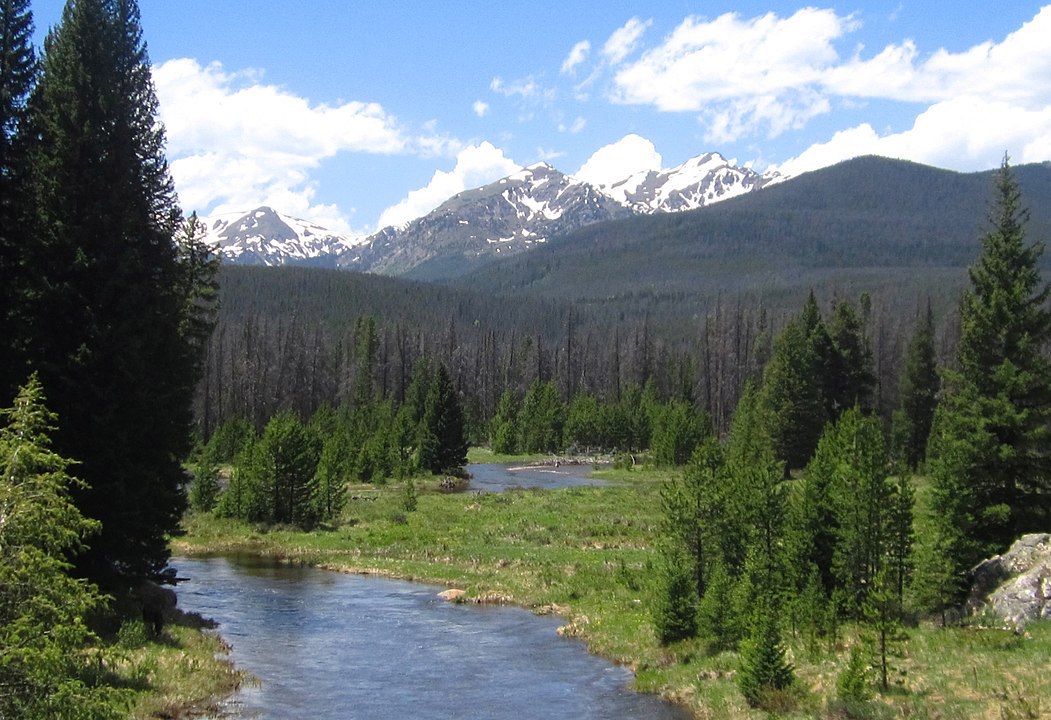
- Details
- By Native News Online Staff
WASHINGTON — The Department of the Interior on Thursday lauded steps taken during the 117th Congress to advance settlements of Indian water rights claims and to protect Tribal sovereignty.
"Water is a sacred resource, and access to water is fundamental to human existence and economic development,” Interior Secretary Deb Haaland said in a statement. “Tribal water rights are crucial to ensuring the health, safety and empowerment of communities. The Biden-Harris Administration was proud to support these bills, and I am grateful to the bill sponsors and committee leaders for making progress in Congress to ensure that Tribes are finally getting the water resources they have long been promised.”
Want more Native News? Get the free daily newsletter today.
Indian water rights settlements help ensure that Tribal Nations have safe, reliable water supplies for improving environmental and health concerns on reservations and enabling economic growth, according to the statement.
As part of the 117th Congress’ closing activity, one settlement was enacted, another settlement was amended, and another bill affecting Tribal water rights was enacted. The legislation includes:
S. 4104, the Hualapai Tribe Water Rights Settlement Act of 2022: The Hualapai Tribe Water Rights Settlement Act of 2022 settles the Tribe’s water rights claims in Arizona and is the result of over a decade of dedicated, good-faith negotiations among the tribe, the federal government, the State of Arizona, and other parties. The bill approves a settlement agreement that will provide much needed water to the Tribe and establishes a trust fund of $312 million that the Tribe can use to develop water infrastructure on its Reservation. The Act’s provisions will help provide certainty to the Tribe and to surrounding communities regarding access to water resources, enable Tribal economic growth, and promote Tribal sovereignty and self-sufficiency.
S. 3168, an Act to amend the White Mountain Apache Tribe Water Rights Quantification Act of 2010 to modify the enforceability date for certain provisions, and for other purposes: This Act amends the White Mountain Apache Tribe’s 2010 Settlement, which settled the Tribe’s water rights claims in Arizona. That Act authorized the design and construction of a rural water system to address the dire need for a domestic water supply on the Tribe’s Reservation. Working closely with experts at the Bureau of Reclamation, the Tribe identified critical changes to the infrastructure design along with the need for additional funding to complete the project. This amendment provides the additional $530 million needed to complete construction of the rural water system.
S. 3308, the Colorado River Indian Tribes Water Resiliency Act of 2022: The Colorado River Indian Tribes Water Resiliency Act of 2022 authorizes the Colorado River Indian Tribes to lease, exchange, store, or conserve portions of their decreed water rights located in the State of Arizona to off-Reservation users. This Act – the product of many years of diligent negotiations among the Tribe, the State, and non-Indian water users – reflects the federal government’s commitment to Tribal self-determination and Tribal sovereignty.
The new water rights laws supplement resources provided for in the Bipartisan Infrastructure Law (BIL) that the Biden administration championed. The infrastructure law provides more than $13 billion for Tribal communities, including $2.5 billion to implement the Indian Water Rights Settlement Completion Fund.
Photo Credit: Hogs555, CC BY-SA 3.0, via Wikimedia Commons
More Stories Like This
Gwich'in Tribal Governments Submit Comments Challenging Fish and Wildlife Service's Inadequate Environmental Review of Arctic Refuge Snow RoadRappahannock Tribe Challenges 9M-Gallon Water Plan
Feds release draft long-term plans for Colorado River management
Apache Leader Walks 60 Miles to Court Hearing That Will Decide Fate of Sacred Oak Flat
Rappahannock Tribe Raises Sovereignty and Environmental Concerns Over Caroline County Water Permit
Help us defend tribal sovereignty.
At Native News Online, our mission is rooted in telling the stories that strengthen sovereignty and uplift Indigenous voices — not just at year’s end, but every single day.
Because of your generosity last year, we were able to keep our reporters on the ground in tribal communities, at national gatherings and in the halls of Congress — covering the issues that matter most to Indian Country: sovereignty, culture, education, health and economic opportunity.
That support sustained us through a tough year in 2025. Now, as we look to the year ahead, we need your help right now to ensure warrior journalism remains strong — reporting that defends tribal sovereignty, amplifies Native truth, and holds power accountable.
 The stakes couldn't be higher. Your support keeps Native voices heard, Native stories told and Native sovereignty defended.
The stakes couldn't be higher. Your support keeps Native voices heard, Native stories told and Native sovereignty defended.
Stand with Warrior Journalism today.
Levi Rickert (Potawatomi), Editor & Publisher

